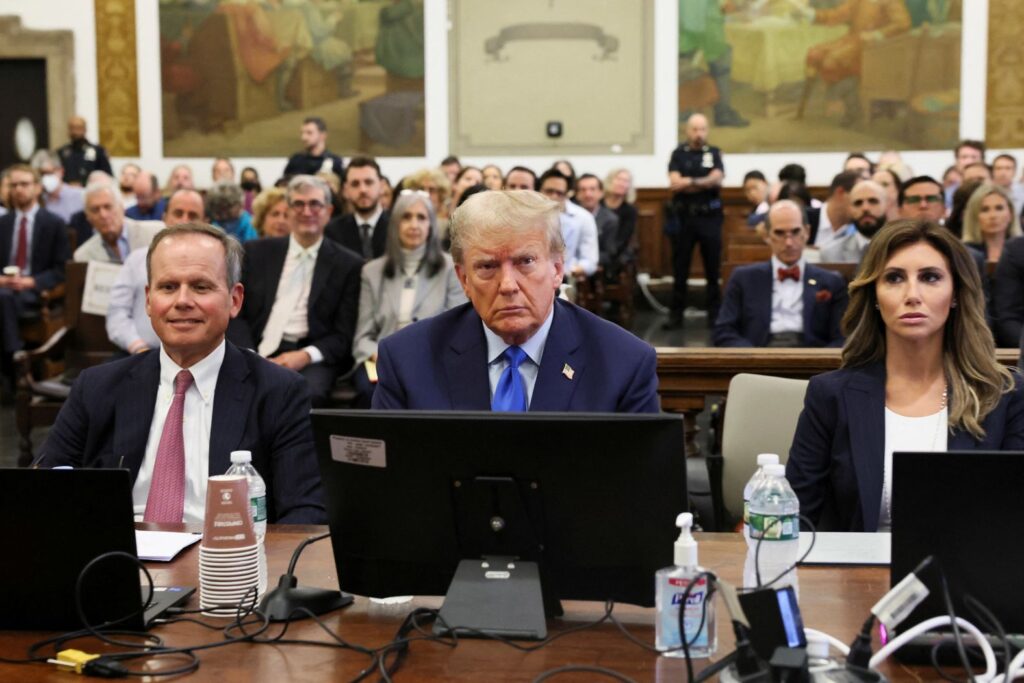We delve into a troubling trend that has quietly emerged in our political landscape—the rise of “lawfare.” This term, once relegated to legal textbooks, is now a staple of our daily political discourse. We’re witnessing an alarming increase in the number of lawsuits targeting political figures, and it begs the question: what does this mean for our democracy?
To understand the current state of lawfare, it’s essential to compare it to the previous century. In the 20th century, political disputes were often settled through traditional means: elections, debates, and, when necessary, civil discourse. The idea of using the legal system as a weapon against opponents was largely unthinkable. While politicians have always faced scrutiny and criticism, the modern era has introduced a new dynamic—a veritable courtroom war.
Fast forward to the 21st century, where legal battles have become a common tool in political arsenals. From former presidents to local officials, no one is immune. Lawsuits have become the go-to strategy for political maneuvering, often drowning out genuine debate. The left, in particular, has weaponized litigation, leveraging the courts to achieve what they cannot at the ballot box. It’s not just about seeking justice anymore; it’s about creating chaos and hampering opponents.
Look at the avalanche of legal challenges faced by political figures in recent years. From the Trump-era indictments to the ongoing investigations of various public officials, it seems that a new lawsuit is always waiting in the wings. This isn’t just a coincidence; it’s a calculated strategy aimed at demoralizing opponents and undermining their legitimacy. The objective is clear: to drain political figures of their time and resources, forcing them to defend themselves in court instead of focusing on governance.

But it’s not just the right or the left that has taken part in this game. Both sides have embraced lawfare, turning our courts into battlegrounds where political agendas are fought with legal briefs instead of ballots. The implication for our democracy is dire. When the legal system is used as a weapon, it not only erodes trust in our institutions but also stifles genuine political discourse.
Fortunately, amidst this chaotic landscape, there’s a glimmer of hope: the United States Supreme Court. The highest court in the land has become a crucial bulwark against the overreach of lawfare. Through careful rulings and a commitment to the Constitution, the Supreme Court has managed to restore some semblance of balance in a system that often feels tipped in favor of litigation over legitimate governance.
The Supreme Court’s intervention acts as a reminder that our legal system is designed to serve justice, not as a tool for political vendettas. It underscores the importance of due process and the presumption of innocence—principles that seem to be forgotten in today’s frenetic legal climate.
As we navigate this new era of political conflict, it’s vital to recognize the potential consequences of unchecked lawfare. If we allow litigation to become the primary means of political discourse, we risk alienating voters, weakening our democratic institutions, and turning our courts into battlegrounds devoid of fairness. The Supreme Court’s presence is a crucial safeguard against this trend, reminding us that while the courtroom can be a place of conflict, it should never overshadow the fundamental principles of our democracy.
So, as we witness the rise of lawfare in America, let’s keep a close eye on the implications. We must advocate for a political landscape where ideas, not lawsuits, reign supreme. Our democracy deserves no less.


